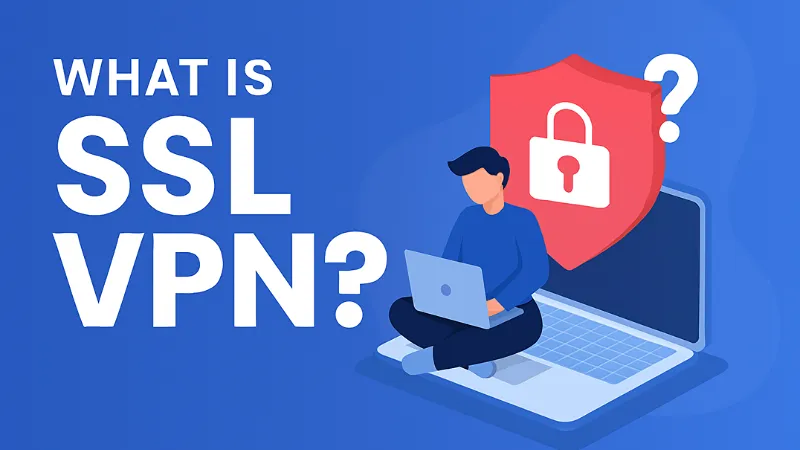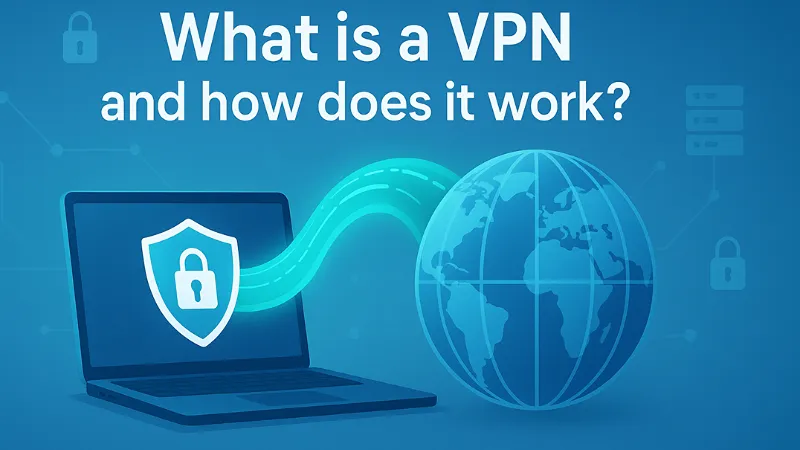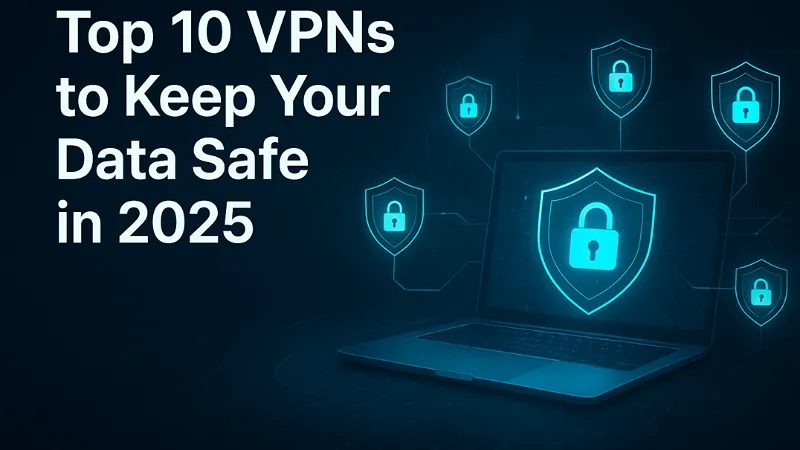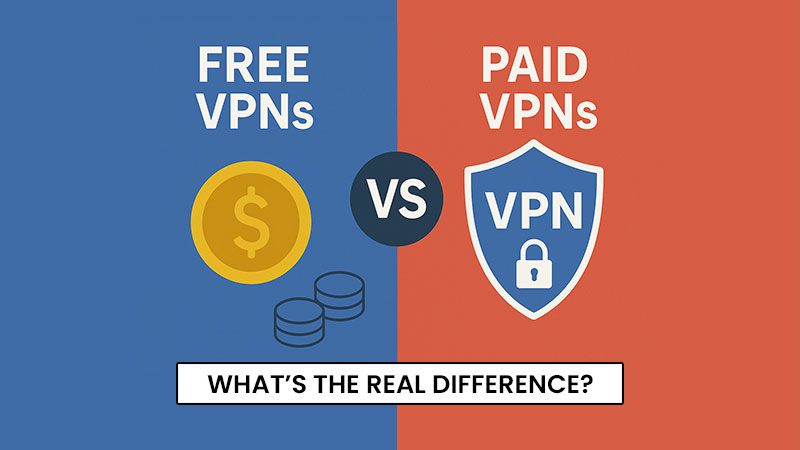Secure remote access is more important than ever. With the rise of remote work, cloud applications, and mobile connectivity, organizations are facing increasing challenges in keeping data safe while ensuring employees can access business resources seamlessly. Cyber threats such as data breaches, phishing attacks, and unauthorized intrusions are at an all-time high, making it critical for businesses to adopt reliable solutions that balance security with convenience. For individuals as well as companies, ensuring that sensitive information remains protected while maintaining productivity is no longer optional – it’s a necessity. One of the most widely used VPN security solutions that addresses these challenges is an SSL VPN.
SSL VPN (Secure Sockets Layer Virtual Private Network) is a type of VPN technology that uses SSL encryption (or its successor, TLS – Transport Layer Security) to create a secure and encrypted connection between a user’s device and a private network. Unlike traditional VPNs that often require special client software, SSL VPNs can typically be accessed through a standard web browser, making them more flexible and user-friendly.
How Does SSL VPN Work?
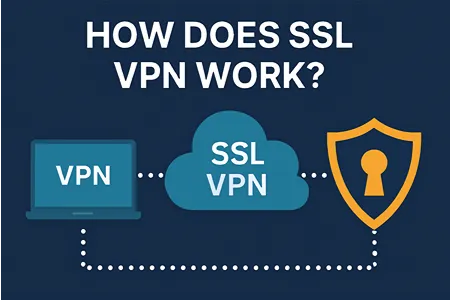
An SSL VPN operates by creating a secure, encrypted connection between the user’s device and the private network they are trying to reach. Unlike traditional VPNs that may require dedicated client software, SSL VPNs take advantage of the SSL/TLS protocols that are already built into most modern web browsers. This makes them both convenient and highly secure.
When a user initiates a connection to an SSL VPN:
- Authentication – The user is prompted to log in through a secure web portal. Multi-factor authentication can be enabled to strengthen security.
- Secure Tunnel Creation – Once authenticated, the VPN establishes an encrypted tunnel using SSL encryption, ensuring that all data transmitted between the user and the network is protected from interception.
- Data Transmission – Through this tunnel, users can access internal applications, email servers, file systems, and other corporate resources just as if they were physically on the company’s network.
- Application-Level Access – SSL VPNs can be configured to provide access to specific applications or resources rather than the entire network, reducing risk and enhancing control.
- Seamless Remote Access – Because it works through a browser, users can securely connect from laptops, tablets, or even mobile devices without complex setups.
This process not only ensures secure remote access but also simplifies connectivity for organizations that have a distributed workforce. By leveraging widely adopted security standards, SSL VPNs make encrypted communication accessible, scalable, and reliable for businesses of all sizes.
Key Benefits of SSL VPN
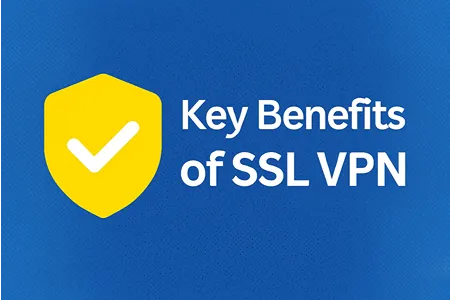
- Strong Security – Protects sensitive data with advanced SSL encryption, ensuring that communications remain confidential and protected from cyber threats. It prevents hackers from intercepting or tampering with data, which is especially critical when employees connect from public Wi-Fi or unsecured networks.
- Ease of Use – Works through standard web browsers without complex installations, making it extremely convenient for both IT teams and end users. Employees can log in securely with minimal training, reducing onboarding time and IT support requests.
- Remote Accessibility – Provides seamless secure remote access to internal systems, enabling employees to work productively from home, while traveling, or from branch offices. This flexibility supports modern workplace trends such as remote work and hybrid work environments.
- Cost-Effective – Reduces the need for expensive networking hardware and eliminates the complexities associated with traditional VPN client deployments. Businesses save on infrastructure and maintenance costs while still achieving enterprise-grade security.
- Scalability – Supports organizations of all sizes, from startups to global enterprises. As a business grows, SSL VPN solutions can easily scale to accommodate additional users without requiring significant changes to existing infrastructure.
- Granular Access Control – Administrators can grant role-based access, limiting users to only the applications and resources they need. This minimizes security risks by preventing unnecessary exposure of sensitive systems.
- Cross-Platform Compatibility – Because SSL VPNs are browser-based, they work across multiple devices and operating systems, including Windows, macOS, Linux, iOS, and Android. This makes them highly adaptable to diverse work environments.
These SSL VPN benefits make it one of the most reliable and versatile solutions for modern organizations that prioritize both security and usability.
SSL VPN vs IPSec VPN
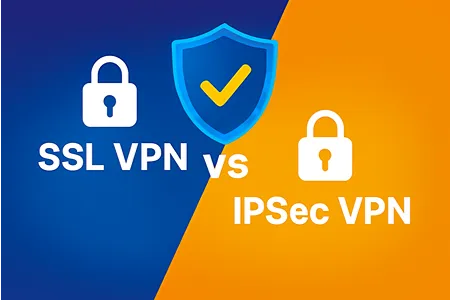
While both SSL VPN vs IPSec VPN solutions are designed to provide secure remote access, they differ in implementation, use cases, and management requirements.
SSL VPN
- Browser-Based Access – Users can connect through a standard web browser without installing complex client software.
- Application-Level Control – Administrators can grant access to specific applications or services rather than the entire network, improving security.
- Ease of Deployment – SSL VPNs are generally quicker and simpler to set up, making them ideal for organizations with limited IT resources.
- User Experience – Provides flexibility for employees who may be using various devices, including laptops, tablets, and smartphones.
IPSec VPN
- Client-Based Access – Requires dedicated software to be installed on each user’s device.
- Full Network Access – Offers access to the entire network rather than limiting it to certain applications, which can be useful for IT teams and power users.
- Higher Configuration Complexity – IPSec VPNs usually require more technical setup, including firewall rules and specialized hardware support.
- Enterprise-Level Use – Better suited for large-scale organizations with advanced networking needs and IT support teams.
Choosing Between SSL VPN and IPSec VPN
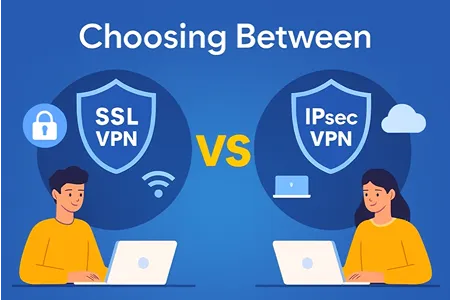
The decision between SSL VPN and IPSec VPN depends on business requirements. For organizations prioritizing secure remote access with minimal setup and application-specific control, SSL VPN is often the preferred choice. For companies needing full network access with advanced IT oversight, IPSec VPN can be the better fit. Many enterprises even deploy both, using SSL VPNs for general employees and IPSec VPNs for IT staff or high-level administrators.
Why Businesses Use SSL VPN
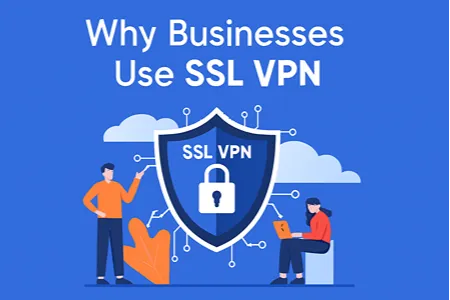
Companies adopt SSL VPN solutions to enable remote work, protect data transfers, and ensure compliance with data security regulations. With more employees working remotely, SSL VPNs provide a safe and efficient way to keep teams connected.
Beyond remote access, businesses rely on SSL VPNs to:
- Enhance Productivity – Employees can securely access files, applications, and communication tools from any location, ensuring uninterrupted workflows.
- Ensure Regulatory Compliance – Industries such as healthcare, finance, and government must adhere to strict data protection standards. SSL VPNs help organizations meet these compliance requirements by safeguarding sensitive data with strong SSL encryption.
- Reduce IT Complexity – Because SSL VPNs often run through web browsers, companies avoid the need for complicated software installations or heavy IT maintenance.
- Support a Global Workforce – As businesses expand internationally, SSL VPNs allow staff, contractors, and partners across different regions to securely access corporate resources without exposing the network to unnecessary risks.
- Mitigate Cybersecurity Risks – With rising cyber threats like phishing, man-in-the-middle attacks, and ransomware, SSL VPNs add a strong layer of protection that prevents data interception and unauthorized access.
These features make SSL VPNs an indispensable part of modern VPN security solutions, helping businesses balance security, cost efficiency, and ease of use.
An SSL VPN is a secure, flexible, and user-friendly method for remote network access. By leveraging SSL encryption, it protects sensitive information while allowing users to connect seamlessly from virtually anywhere. Whether for small businesses or large enterprises, SSL VPNs have become an essential part of modern VPN security solutions.
Frequently Asked Questions (FAQs)
SSL VPN is used to provide secure remote access to private networks, enabling employees and users to safely connect to company applications, files, and systems from anywhere.
Yes, SSL VPNs are considered secure because they use SSL/TLS encryption to protect data transmission, preventing unauthorized access and cyber threats.
The key difference is that SSL VPNs are typically browser-based and easier to set up, while IPSec VPNs require client software and are designed for full network-level access.
In most cases, no. SSL VPNs can be accessed directly through standard web browsers, making them more user-friendly compared to other VPN solutions.
The main SSL VPN benefits include strong security, ease of use, cost-effectiveness, remote accessibility, and scalability for businesses of all sizes.

